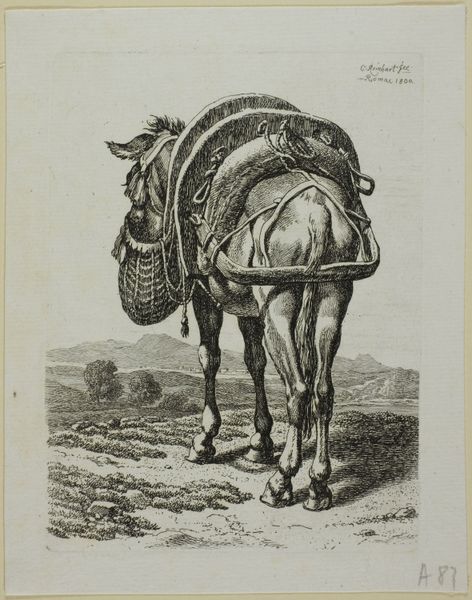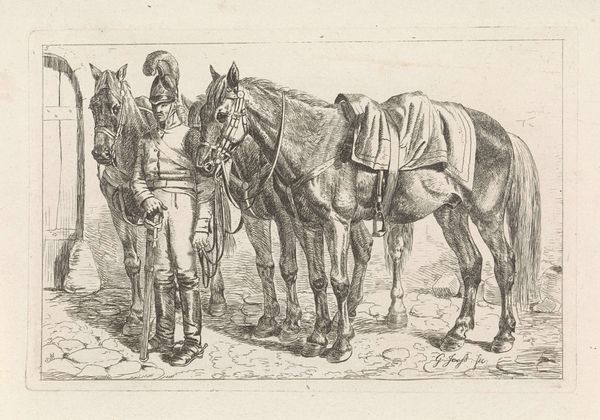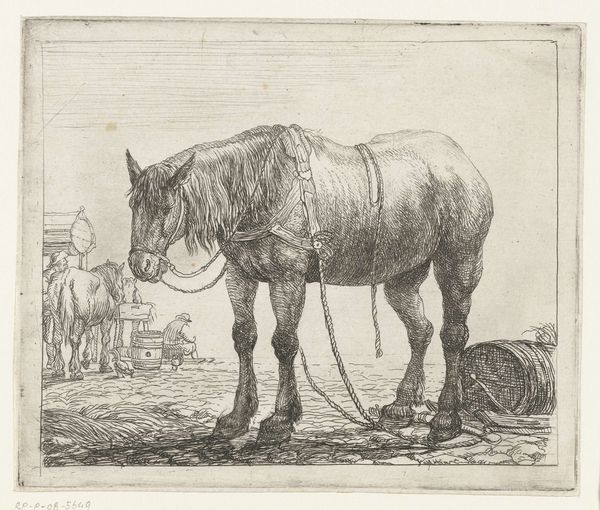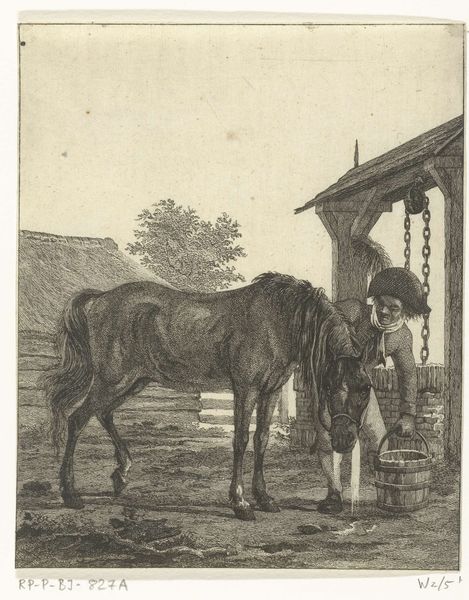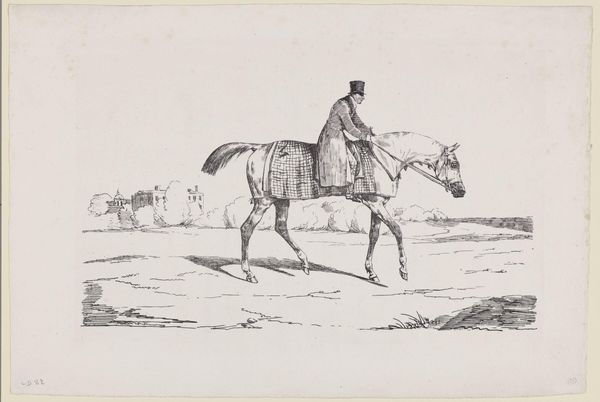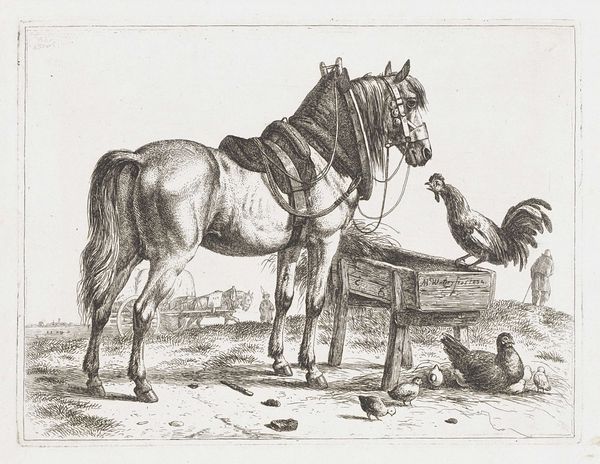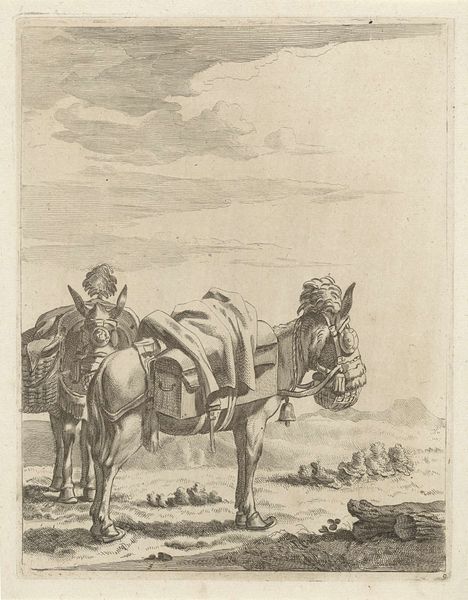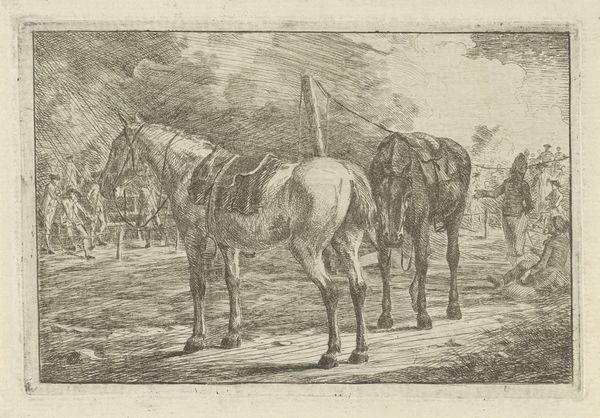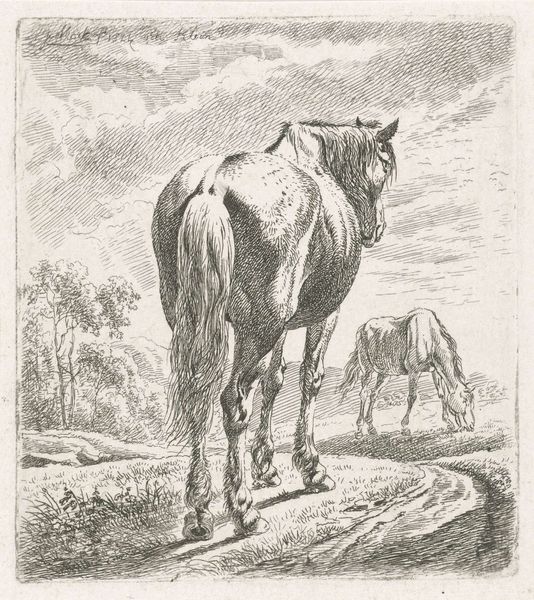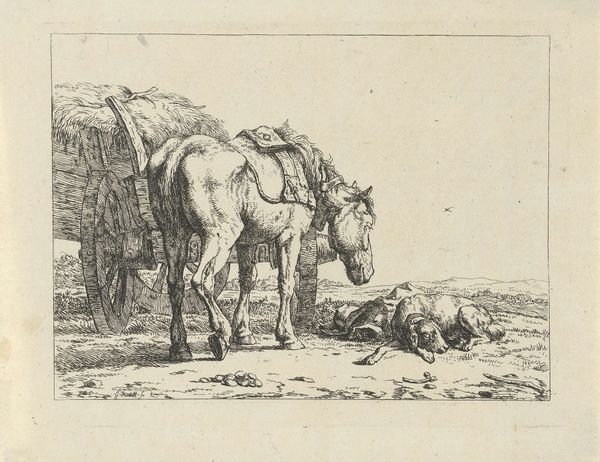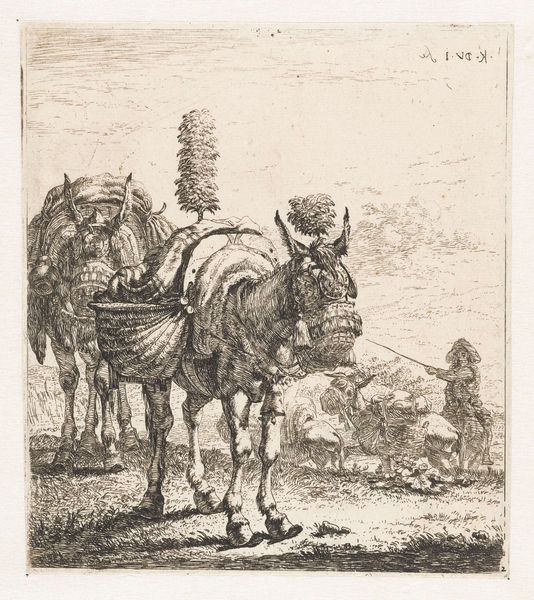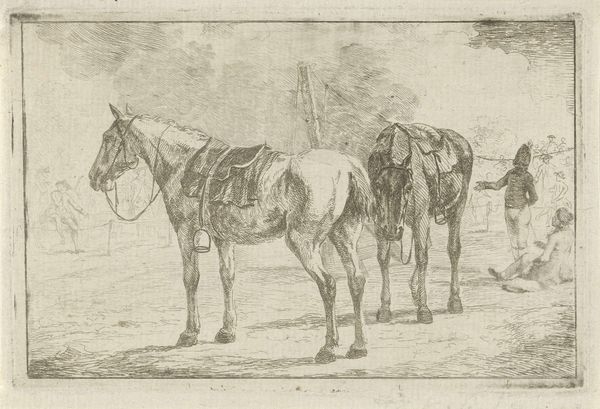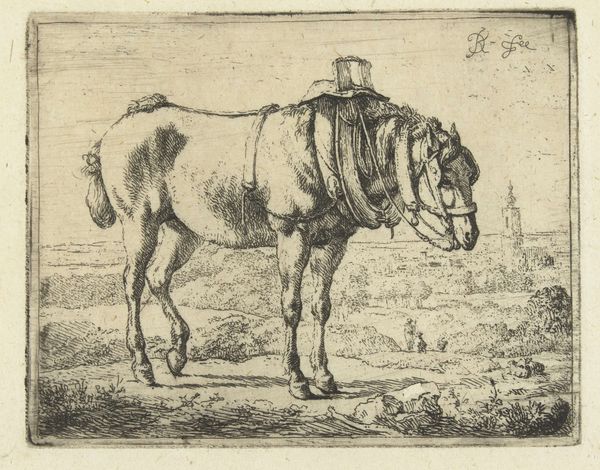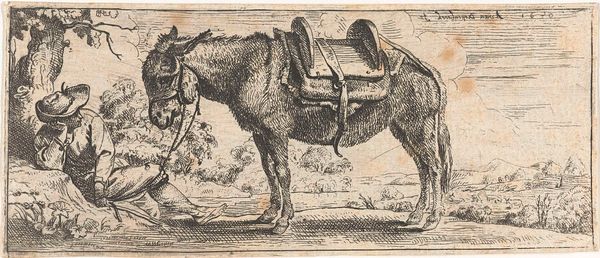
Feeding Mule - Front, from Die Zweite Thierfolge 1800
0:00
0:00
drawing, print, etching, paper
#
drawing
# print
#
etching
#
landscape
#
paper
#
realism
Dimensions: 146 × 108 mm (plate); 174 × 132 mm (sheet)
Copyright: Public Domain
Johann Christian Reinhart created this etching, "Feeding Mule - Front, from Die Zweite Thierfolge", in Rome around 1800. Reinhart, a German painter and engraver, spent much of his career in Italy, where he became known for his landscapes and animal studies. This image invites us to consider the lives of working animals and the labor they perform. We see a mule, burdened with a heavy load, its head confined by a feeding muzzle. This was a period when animals were essential to labor; their treatment reflects broader social structures of power and exploitation. The mule, a hybrid animal, might also symbolize the mixing of cultures Reinhart experienced in Italy, a place of encounter between the north and south of Europe. What does it mean to depict an animal not as a symbol of pastoral idyll, but as a worker, constrained and burdened? It asks us to consider our relationship with the natural world, and the ways in which we impose our needs and desires upon other living beings. It’s a poignant reflection on labor, freedom, and the complex relationship between humans and animals.
Comments
No comments
Be the first to comment and join the conversation on the ultimate creative platform.
